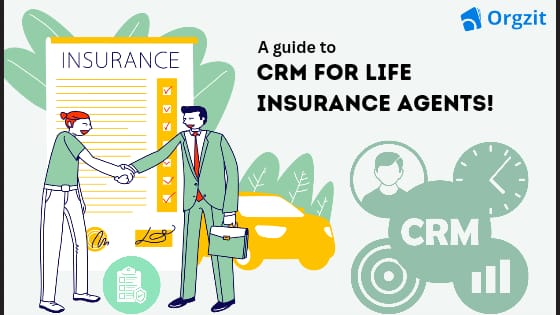Minimize risks in construction projects even with slow cash flow: A guide to construction CRM
Managing the tactical aspects of construction systems can be challenging sometimes, especially when multiple stakeholders are involved. Construction is about translating client expectations into a physical structure, and this is hardly dependent upon strong client connections.
Crafting a beneficial CRM in construction isn’t just about completing multiple projects—it’s about translating your client’s vision into a tangible reality that involves a myriad of risk assessments, timely project delivery, safety compliance, labor adherence, and adherence to project timelines.
In this guide, we’ll explore relevant things you need to know about construction CRM. This includes guidance on selecting the right system for your specific requirements and analyzing your CRM investment.
What is a Construction CRM?
Beyond being a system to collect and track all customer interaction, from original contact to project completion steps, a construction company benefits from a CRM to deliver superior client service and point openings for upselling and cross-selling.
One company may use a CRM system to oversee their deals channel, tracking the progress of each project and identifying the most promising conversions.
Another might employ it to manage their systems, covering task progress, relating implicit issues, and easing communication with all design stakeholders.
Challenges in Construction
Construction is a complex industry with a lot of moving parts. Where—construction companies have some challenges that are—
- Vender operation
- Safety operation
- Budget tracking
- Cost estimation
- Change orders
- Design schedules
- Daily, weekly, and yearly examination logs
- Bidding processes and contract accommodations
- Quality control
- Job point monitoring
Implementations Norms,
For vendor operation—
- Most of the construction companies say managing vendor relationships is a top priority.
- Some construction companies are using CRM to manage vendor relationships.
- Some construction companies say CRM has helped them improve their vendor relationships.
For safety operation—
- Safety is a top priority for construction companies.
- CRM can help construction companies to track safety data and identify areas where improvement is needed.
- CRM can also help construction companies to communicate safety data to all stakeholders in a timely manner.
Financial Norm,
For budget tracking—
- Only a small amount of construction projects are completed on time and within budget.
- Construction projects are over budget by an average of 20%.
- CRM can help construction companies to track their budgets more accurately and identify areas where costs can be reduced.
For cost estimation—
- Inaccurate cost estimation is one of the leading causes of construction project overruns.
- CRM can help construction companies improve their cost estimation accuracy by providing them with data on past projects.
- CRM can also help construction companies to identify trends in costs and make better decisions about future projects.
For bidding processes and contract accommodations—
- Construction companies spend a lot of time and resources on bidding processes.
- CRM can help construction companies to automate the bidding process and track their bids more effectively.
- CRM can also help construction companies to manage their contracts more effectively.
Daily Basis Norms,
For changing orders—
- Change orders are a common occurrence in construction projects, and they can often lead to delays and cost overruns.
- CRM can help construction companies manage change orders more effectively by tracking all changes to the project scope and budget.
- CRM can also help construction companies communicate changes to all stakeholders in a timely manner.
For design schedules—
- Construction projects are often delayed by design changes.
- CRM can help construction companies track design changes and ensure that they are communicated to all stakeholders in a timely manner.
- CRM can also help construction companies identify trends in design changes and make better decisions about the design process.
For daily, weekly, and yearly examinations—
- Keeping track of daily, weekly, and yearly examination logs is essential for construction companies.
- CRM can help construction companies to automate the process of creating and maintaining examination logs.
- CRM can also help construction companies to share examination logs with all stakeholders in a timely manner.
Productivity Norms,
For quality control—
- Quality control is essential for construction companies.
- CRM can help construction companies to track quality control data and identify areas where improvement is needed.
- CRM can also help construction companies to communicate quality control data to all stakeholders in a timely manner.
For job point monitoring—
- Job point monitoring is essential for construction companies to track progress and ensure that projects are on track.
- CRM can help construction companies to automate the job point monitoring process.
- CRM can also help construction companies share job point data with all stakeholders in a timely manner.
Marketing Insights,
Certainly! When it comes to marketing for a construction Customer Relationship Management (CRM) system, there are several statistical concepts and strategies that also need to be considered.
For customer segmentation and target—
- Analyze customer data to identify key segments (e.g., residential vs. commercial clients, project types, geographic locations).
- Use this information to tailor marketing messages and campaigns to specific segments.
For lead source analysis—
- Determine which marketing channels (e.g., social media, SEO, referrals) are generating the most qualified leads.
- Allocate resources towards the most effective lead sources.
For customer lifetime value (CLV)—
- Calculate the CLV to understand the long-term value of your customers.
- Use this information to allocate resources for customer acquisition and retention efforts.
Top Use Cases of A CRM—Replace your Challenges with Opportunities
Here are some of the top use cases of using a CRM that replaces your challenges into opportunities—where
Customer contact management
❌Without CRM, construction businesses typically manage customer contact information manually. This could lead to lost or inaccurate data, making it difficult to track customer interactions.
✔ With CRM, construction businesses can automate and centralize their customer contact management. All customer contact information is stored in one place, and it is easy to track customer interactions over time.
Lead generation and management
❌Without CRM, construction businesses typically generate leads through word-of-mouth, advertising, and networking. This could be a time-consuming and ineffective process.
✔With CRM, construction businesses can automate their lead generation and management process. This can help them generate more leads and convert them into customers more effectively.
Project management
❌Without CRM, construction businesses typically manage projects using spreadsheets and other manual tools. This could lead to disorganization and chaos.
✔ With CRM, construction businesses can use CRM software to automate and organize their project management process. This can help them stay on track and on budget and communicate more effectively with their team members and customers.
Customer communication
❌Without CRM, construction businesses typically communicate with their customers through email, phone, and in-person meetings. This could lead to disjointed and inconsistent communication.
✔ With CRM, construction businesses can use CRM software to centralize their customer communication. This way, all customer interactions are recorded in one place, and it is easy to track them over time.
Reporting and analytics
❌Without CRM, construction businesses typically have limited and inaccurate reporting and analytics capabilities. This made it difficult to make informed business decisions.
✔ With CRM, construction businesses can use CRM software to generate comprehensive and insightful reports on their sales pipeline, project progress, and customer interactions.
How can a Construction Project Manager—Map project’s success with just 4 easy steps
Suppose you are a construction project manager working on a new project. You have a lot of tasks like managing the project budget, scheduling subcontractors, and communicating with the client.
Create a project plan
Track the progress of each task. Use CRM to manage your contacts with subcontractors and clients.
Set-Up reminders
CRM will remind you of all your tasks that are pending and keep you updated on the status of each contact.
Activate Communication Channel
You are able to communicate more effectively with your team and clients. You can use the software to send emails, make phone calls, and create reports. The software also allows you to share documents and files with your team and clients.
Actively Update and Use CRM
Now, you are ready to stay on track and manage the project more effectively, and you can also provide better customer service to your clients.
Final thoughts
A construction CRM solution is a tactical to publish your business solutions. By consolidating all client, project, and business data into a single platform, you enhance operational efficiency and elevate the overall client experience. With honest self-evaluation, you can pinpoint where the majority of your time is spent on a typical day!
Hit your construction goals by scheduling a demo with us!









